When stressed or presented with unusual situations, a cat will be able to hold their poop for as many as three whole days.
Typically most healthy cats will poop once a day though in some cases cats may hold their poop for longer than three days however this may lead to their health being put in danger.
If your cat has not pooped for more than 3 days then we recommend you speak with a vet ASAP.
JustAnswer allows you to talk in real-time to veterinary experts for a small fee.
Contents
Factors That Impact How Long A Cat Can Hold Their Poop For:
1. Age
It is widely known that senior cats tend to have a lower pooping frequency compared to their younger counterparts.
This means that you can expect your elderly cat to poop once every two days instead of every day.
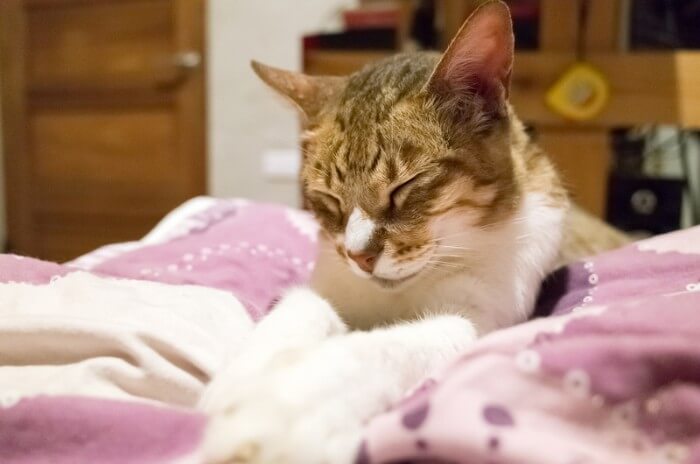
It might also mean that you may have to take them to the vet clinic more often so that the vet makes sure they haven’t developed a fecaloma.
2. Diet
Cats are obligate carnivores, so they are supposed to have a diet composed of animal protein sources.
However, even in the wild, they sometimes regulate their own digestion by eating grass — therefore, by adding some extra fibre to their food.
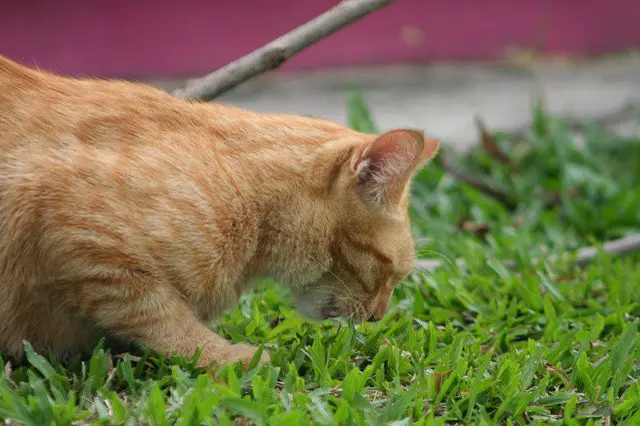
If your cat tends to suffer from constipation, ask your vet about healthy fibre-rich cat food. The best ones contain ingredients such as pumpkin instead of poor fibre choices like wheat or corn.
Wet cat food is better for preventing constipation. Cats aren’t crazy about drinking water anyway, so the extra hydration will help them pass stools more easily.
3. Exercise
When your cat runs around and has the opportunity to play several times a day for at least 15-30 minutes, their bowel movements are stimulated properly.
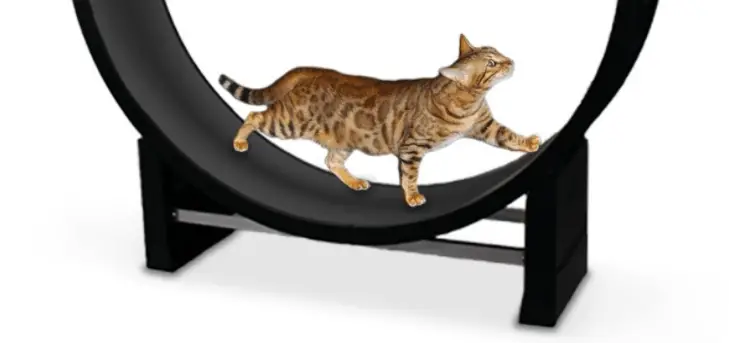
If your cat is sedentary and you rarely play with them, not only will they risk getting bored, but they will also run the risk of becoming constipated — especially if you feed them a dry food diet exclusively.
4. Stressful situations
In order to ‘go to the bathroom’, a cat needs to feel safe.
If they feel like they might be attacked from any corner by anyone or anything, they will not want to use the litter box.
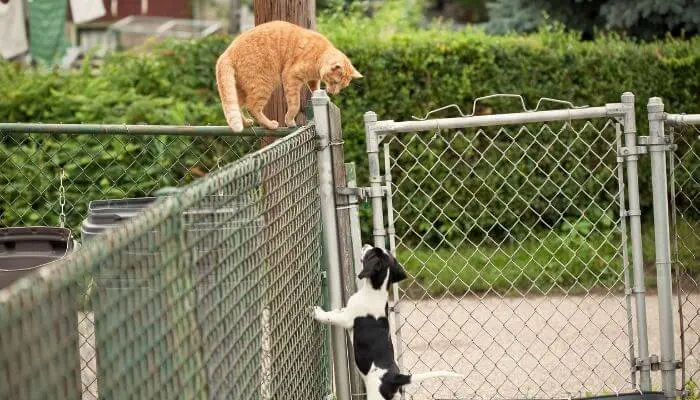
This situation applies to cases where you move homes or take your cat to the vet every day.
Your pet might be so stressed that peeing or pooping might be the last thing on their mind — and that is not healthy for them.
5. Medical conditions
There are many health issues that can influence bowel movements, and they don’t strictly relate to the digestive tract.
Of course, if your cat tends to groom their body too much and accidentally ingests a lot of hair, they may develop a trichobezoar that blocks the passing of digested food through the whole tract.
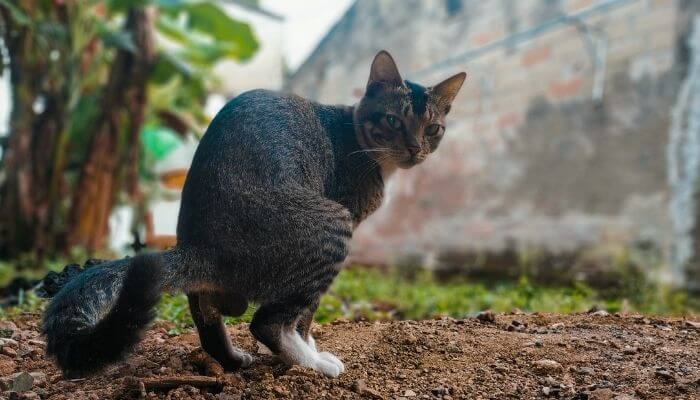
Constipation can also appear as a result of abdominal pain or discomfort, so it can show up in liver or kidney disease.
Megacolon or damage to the pet’s spine can be two other causes.
Needless to say, all of these have to be diagnosed and treated at the animal hospital, and once they are healed, constipation will disappear naturally, too.
6. Medications
Drugs come with side effects regardless of the species they are administered to.
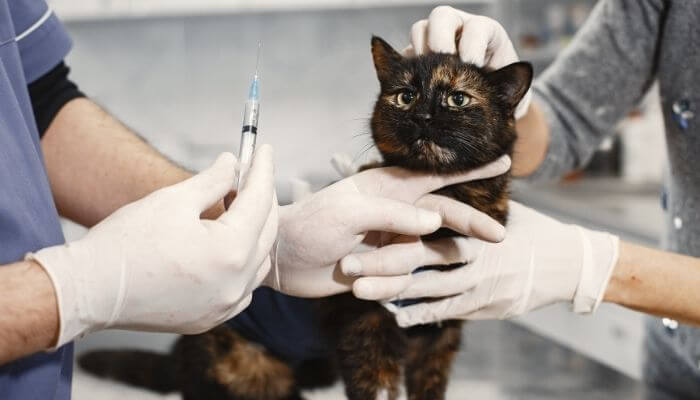
Some medications might cause constipation, so if your cat already has a tendency to poop once every two days, they are a senior, or they aren’t drinking enough water, make sure to ask your vet if this adverse reaction isn’t common for your pet’s treatment.
7. Trauma
Trauma can lead to a number of complications, whether that be the organs changing their normal topography or an intestinal puncture.

Pooping is not going to be something you see your cat do after they were hit by a car – unless they lose control over their reflexes.
What Is Normal Pooping Frequency For a Cat?
Ideally, your cat should poop every single day, once a day.
As you might have been able to tell from the first section of our article, this frequency can be influenced by your cat’s age, what they eat, how often they eat, the amount of water they drink, and whether or not they have a medical condition.
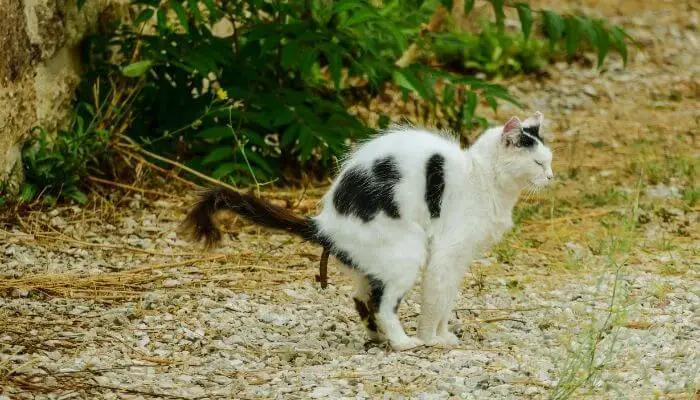
Some physiological situations can also influence stool frequency. Pregnant cats might experience constipation on occasion, depending on the size and orientation of their uterus.
How Long After Surgery Will A Cat Poop?
After going through surgery, most cats will not experience bowel movements for a period of one to two days (sometimes more).
It also depends on whatever your cat is being fed during that time.
For instance, if your cat had surgery on their bowels, the vet will recommend that they are exclusively fed through an IV for a couple of days so that the sutures do not risk being affected by any food fragments.
If your cat has recently has surgery and you are wondering if you need to change their diet then speak with a vet ASAP.
JustAnswer allows you to talk in real-time to veterinary experts for a small fee.
Almost all cats are recommended a liquid diet after going through an operation.
Dry cat food puts pressure on any sutures unnecessarily, so you may have to feed your cat puree or cat soups for a period of several days.
Because these food options are richer in water, your cat may end up pooping 5 days after an operation.
If their general health status is normal and your vet agrees with this statement, you have nothing to worry about.
However, sometimes, the intestines can experience a spasm after surgery, so your cat may need to receive antispasmodic medicine.
Should You Worry If Your Cat Hasnt Pooped In 5 days?
Yes.
Even if your cat tries to deal with the local discomfort by trying to eat as little food as possible, there is always the risk of the faecal matter organising and turning into a fecaloma.
And once that happens, and if your cat develops a megacolon, there will be no treatment option left besides surgery.
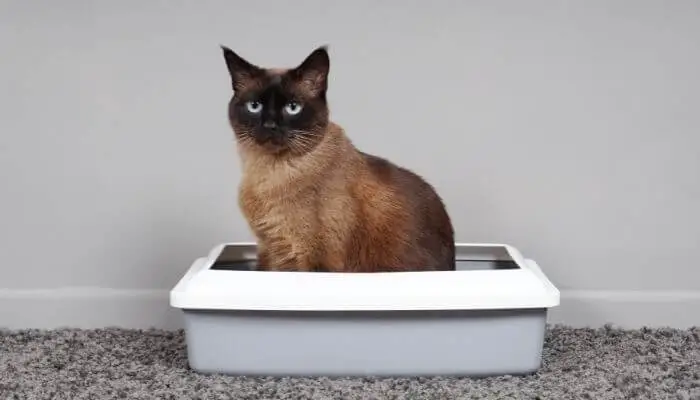
So, if your cat hasn’t pooped for more than 48 hours, take them to the vet immediately.
That faecal matter contains toxins that have resulted from the process of breaking down food, so it needs to be eliminated from your pet’s body.
How To Help A Constipated Cat
Performing an enema at home is definitely not the right way of going about things, as you could be doing more harm than good.
The safest ways of preventing constipation are to:
- Ensure you add more fibre to your cat’s diet.
- Feed them canned food or pouches exclusively so that they get enough water.
- Some supplements, such as probiotics, can be helpful as constipation can often be the result of an imbalance in the intestinal microflora, especially following a round of antibiotics, for example.
- Do not give your cat any human medicine, particularly laxatives, these can cause bad diarrhoea and may even dehydrate your cat to the point where they could die in less than 24 hours.
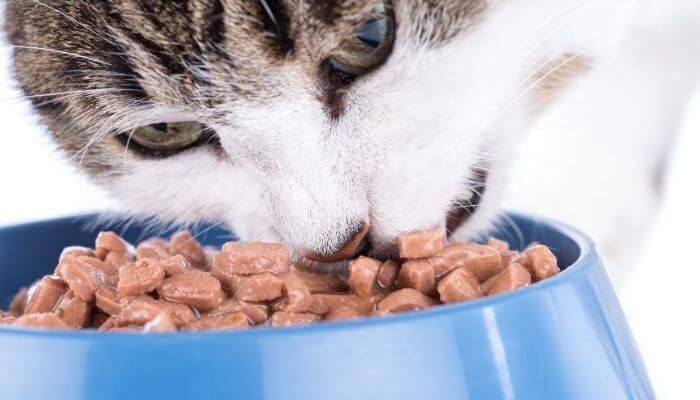
Ask your vet for any remedies that you are allowed to use. When everything fails, take your cat to the animal hospital.
Frequently Asked Questions
Can a Cat Live Without Pooping?
No. Severe constipation is incompatible with life in any species, including cats.
Will Wet Food Help My Cat Poop?
Yes. If they aren’t suffering from an actual medical condition that results in constipation and they are experiencing it as a result of their diet, wet food can help your cat poop.
Do Cats Poop More on Dry Food?
It depends on how much dry food your cat eats. In general, cat kibble does tend to retain water and increases in size once it hits your pet’s stomach, so your cat may poop more.
How Long Does a Cat Poop After Eating?
The reason cats are supposed to experience one important bowel movement per day is that their daily digestion process can take up to 20 hours. So that is the amount of time that will pass between your cat’s main meal and the time they poop.
How Do I Know if My Cat Wants to Poop?
If your pet hasn’t marked another spot in your home, they will go poop in their litter box.
Some cats stimulate their bowel movements by having the so-called ‘zoomies’. They run around like crazy for up to ten minutes throughout your home and then they go use the ‘cat toilet’.
Resources:
- Intestinal obstruction by trichobezoars in five cats, V. R. Barrs et al, 1999, https://pubmed.ncbi.nlm.nih.gov/11714236/
- Radiographic diameter of the colon in normal and constipated cats and in cats with megacolon, Tim Trevail et al, 2011, https://pubmed.ncbi.nlm.nih.gov/21599794/

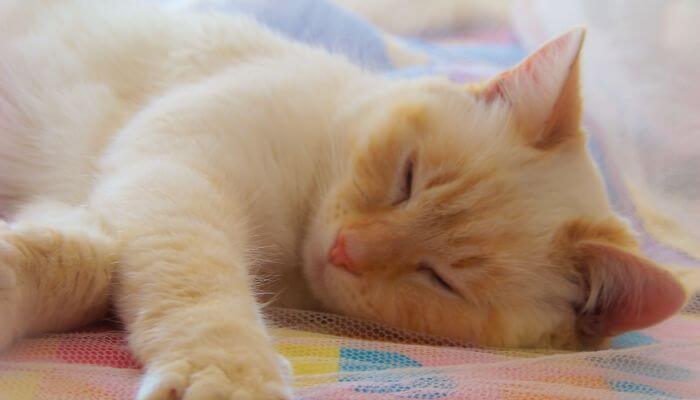
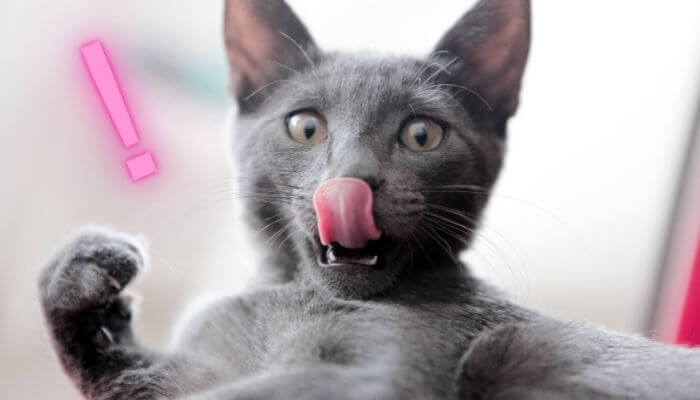
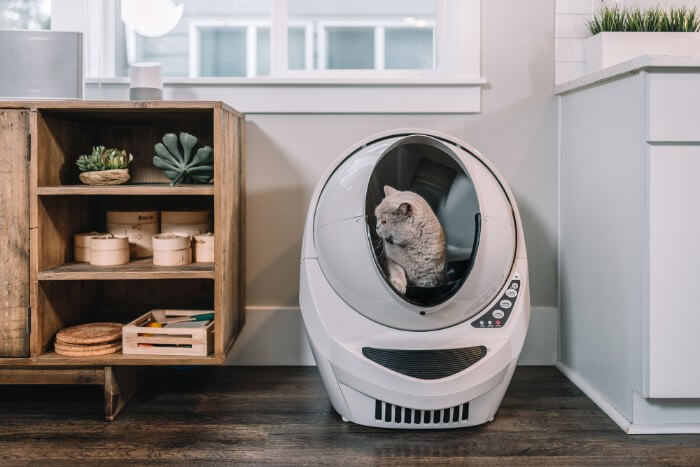
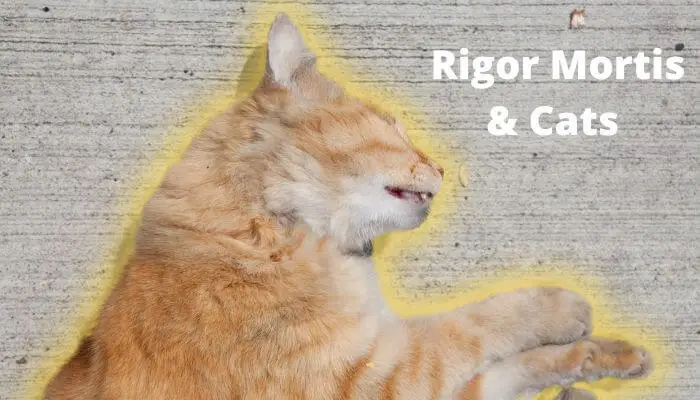
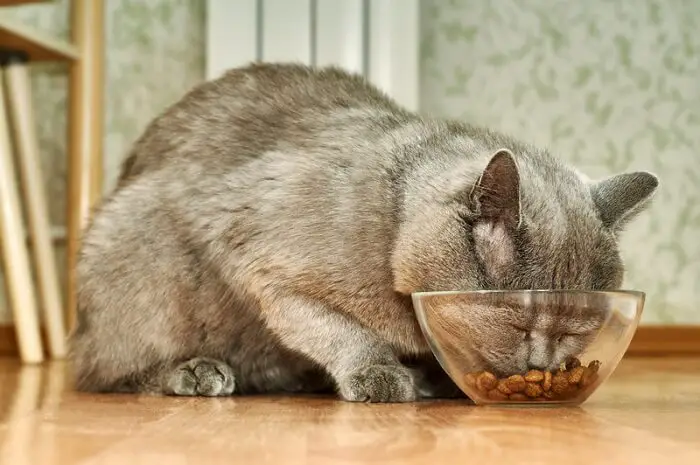

Leave a Comment